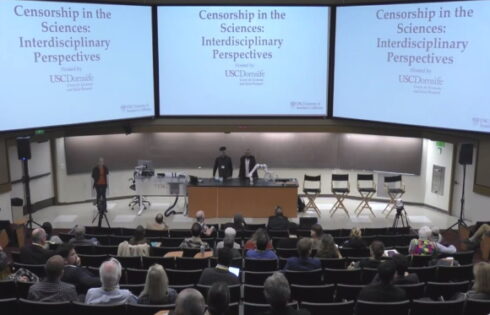 Which degrees help students get jobs? Not the ones they most commonly pursue, a new study found.
Which degrees help students get jobs? Not the ones they most commonly pursue, a new study found.
The study, published by Georgetown University’s Center on Education and the Workforce, revealed a huge wage gap between science, technology, engineering, and mathematics workers (STEM) and non-STEMworkers.
According to the study:
– Over 75 percent of STEM workers with less than a high school education make more than the average for workers with less than a high school education.
– Over 75 percent of STEM workers with a high school diploma make more than the average for workers with a high school diploma.
– Over 71 percent of STEM workers with some college but no degree make more than the average for workers with some college but no degree.
– 66 percent of STEM workers with an Associate’s degree make more than the average for workers with an Associate’s degree.
– Over 56 percent of STEM workers with a Bachelor’s degree make more than the average for workers with a Bachelor’s degree.
– Over 52 percent of STEM workers with a Master’s degree make more than the average for workers with a Master’s degree.
The authors estimated that people with an undergraduate STEM major make $500,000 more over their lifetime than non-STEM majors.
Additionally, a study released by Anthony Carnevale, the center’s director, showed that even with a lesser degree, STEM workers earn more money:
– 63 percent of STEM workers with associate’s degrees earn more than non-STEMworkers with bachelor’s degrees.
– 26 percent of STEM workers with associate’s degrees earn more than non-STEMworkers with doctorates.
– 65 percent of STEM workers with bachelor’s degrees earn more than non-STEMworkers with master’s degrees.
– 47 percent of STEM workers with bachelor’s degrees earn more than non-STEMworkers with doctorates.
– 61 percent of STEM workers with master’s degrees earn more than non-STEMworkers with doctorates.
While not all STEM workers majored in those fields, the overwhelming majority did.
According to Nicole Smith, senior economist at CEW and a co-author of a study that examined STEM and its economic impact, the wage disparity is largely caused by a shortage in STEM workers.
“We have an equivalent amount of grads and jobs,” she said. “These grads are being diverted and end up working somewhere else.”
Diversions into non-STEM work occur at many levels. Only a quarter of students who excel at math and science in K-12 enter STEM majors in college. Thirty-eight percent of students who start college with a STEM major do not graduate with one.
Even 43 percent of STEM graduate choose not to pursue STEM jobs. There are two main reasons for this diversion, said Smith: pay and values.
While STEM occupations value achievement, independence, and recognition, non-STEM occupations tend to draw those interested in friendlier work environments and managerial support. These differences in values tend to filter students and workers away from STEM careers.
“Interest in values tells you it’s not only about money,” said Smith.
Even after continued work in STEM careers, 46 percent of workers with a Bachelor’s degree in STEM have left the field within 10 year of being in the workforce.
These numbers are surprising considering the study found that STEM professions will be the fastest growing in the economy, second only to healthcare occupations.
“There is an indefinite need for more STEM workers,” said Smith.
Dr. Richard Vedder, Director of the Center for College Affordability and Productivity, disagreed with the study.
“Worker ‘shortages’ in the STEM disciplines have been generally overstated,” he said.
Vedder suggested that the key to fixing higher education with respect to job demand is “three words: information, incentives, and innovation.”
“Innovations will take care of much of the problem if we fix the information/incentive problem,” he said.
Stephanie Wang is the editor-in-chief of the Michigan Review. She is a contributor to The College Fix.
Like The College Fix on Facebook / Follow us on Twitter





Please join the conversation about our stories on Facebook, Twitter, Instagram, Reddit, MeWe, Rumble, Gab, Minds and Gettr.